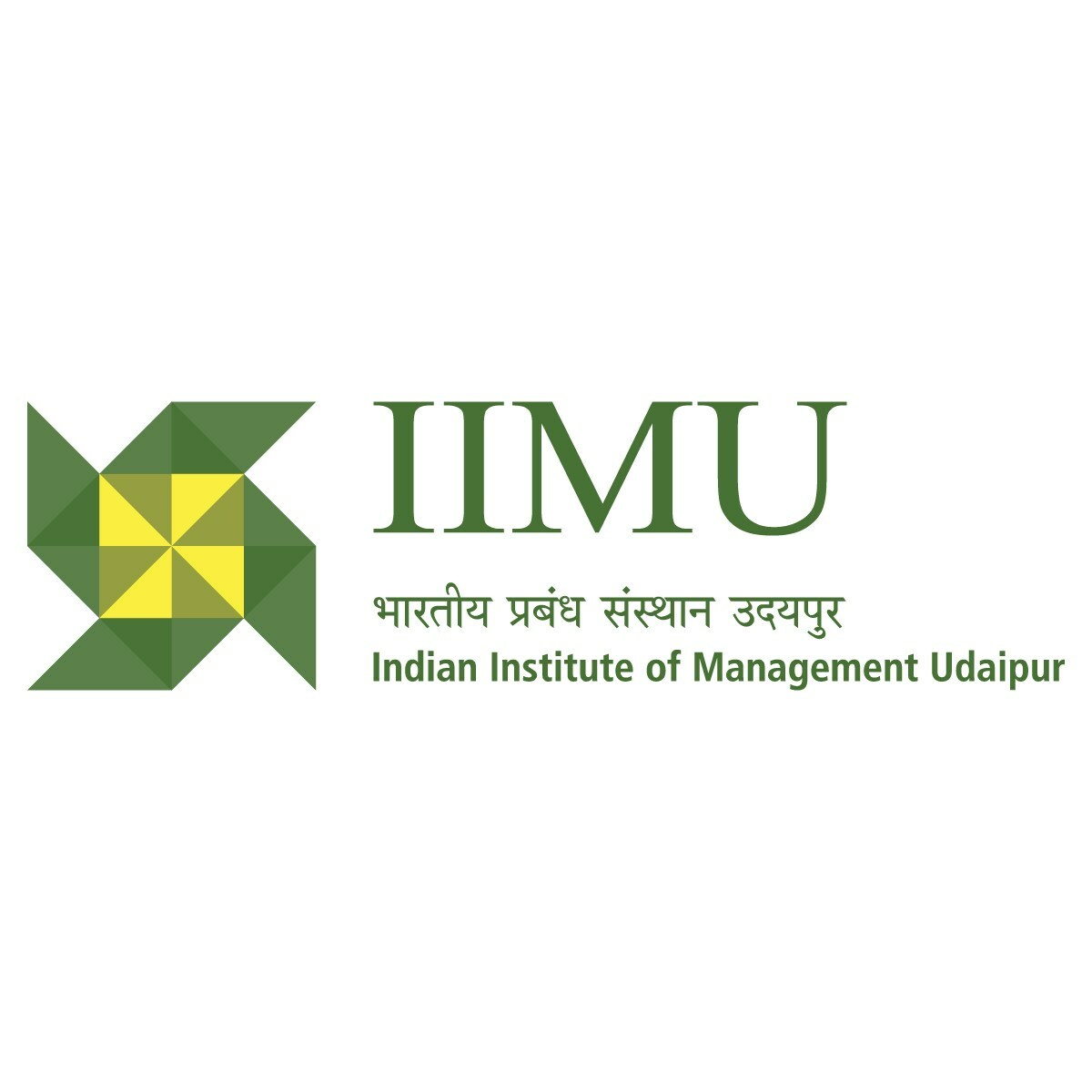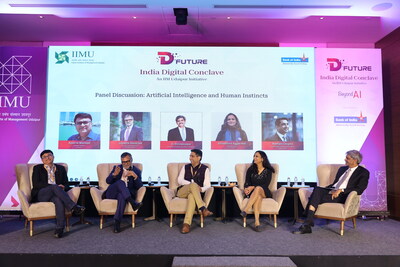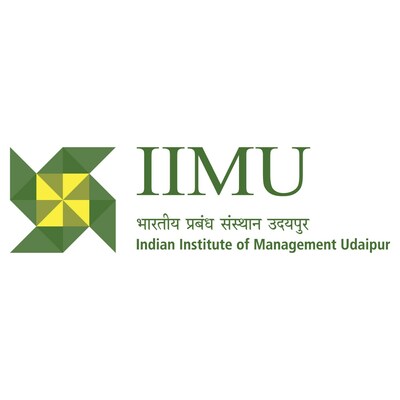
MUMBAI, India, Jan. 20, 2025 /PRNewswire/ -- The Indian Institute of Management, Udaipur (IIMU), successfully hosted the second edition of the D\'Future: India Digital Conclave at the Jio World Convention Centre, Mumbai on January 17, 2025. This landmark event brought together policymakers, researchers, practitioners, business leaders, entrepreneurs and changemakers to delve into the theme: \'Beyond AI: The Next Frontier in Digital Transformation.\'
A PHP Error was encountered
Severity: Warning
Message: Undefined array key 2
Filename: views/newsdetail_view.php
Line Number: 95
Backtrace:
File: /home/judfadzm/public_html/webinar4demand.com/application/views/newsdetail_view.php
Line: 95
Function: _error_handler
File: /home/judfadzm/public_html/webinar4demand.com/application/controllers/News.php
Line: 83
Function: view
File: /home/judfadzm/public_html/webinar4demand.com/application/controllers/News.php
Line: 16
Function: index
File: /home/judfadzm/public_html/webinar4demand.com/index.php
Line: 317
Function: require_once
A PHP Error was encountered
Severity: Warning
Message: Attempt to read property "image_name" on null
Filename: views/newsdetail_view.php
Line Number: 95
Backtrace:
File: /home/judfadzm/public_html/webinar4demand.com/application/views/newsdetail_view.php
Line: 95
Function: _error_handler
File: /home/judfadzm/public_html/webinar4demand.com/application/controllers/News.php
Line: 83
Function: view
File: /home/judfadzm/public_html/webinar4demand.com/application/controllers/News.php
Line: 16
Function: index
File: /home/judfadzm/public_html/webinar4demand.com/index.php
Line: 317
Function: require_once
The one-day conclave served as a dynamic platform to explore cutting-edge insights into innovation and technology, offering a glimpse into how digital transformation is reshaping industries such as Manufacturing, Logistics, Finance, Aviation, Healthcare, Media, Entertainment, Sports and beyond. With engaging panel discussions, thought-provoking keynote addresses, and impactful networking opportunities, IDC-2025 reinforced its commitment to driving meaningful conversations around the future of technology.
The conclave marks yet another significant milestone in IIM Udaipur's dedication to fostering collaboration and thought leadership in the rapidly evolving digital landscape.
The event commenced with an address by Prof. Ashok Banerjee, Director, IIM Udaipur. In his inaugural speech, Prof. Ashok Banerjee, Director of IIM Udaipur, emphasised the institute's pioneering efforts in fostering sustainability, innovation, and digital transformation. He highlighted IIM Udaipur's leadership in renewable energy, with 20% of its energy sourced from renewables, projected to reach 45% by year-end, and its goal of achieving carbon neutrality by 2030. Prof. Banerjee also spoke about the institute's Digital Enterprise Management (DEM) program, which integrates academic rigour with real-world industry interactions to prepare students for emerging trends. Concluding his address, Prof. Banerjee reiterated IIM Udaipur's commitment to leading India's digital and sustainable transformation journey by leveraging innovative education, impactful research, and strategic partnerships.
In his keynote address, P. Vasudevan, Executive Director at the Reserve Bank of India (RBI), highlighted the multifaceted challenges and opportunities in integrating AI into everyday life. He emphasised the critical role of transparency in AI decision-making to ensure financial inclusion and cautioned against the risks of financial exclusion if AI models lack accountability. Mr. Vasudevan discussed concerns such as deepfakes, false simulations, and the gap between AI ideation and execution, using fraud detection and speech-to-text AI as examples. Concluding his address, Mr. Vasudevan spotlighted India's potential in the global AI landscape, supported by initiatives like AIRAWAT, a sophisticated AI research and cloud platform, and the DPDP Act, which will play a pivotal role in shaping the future of digital governance. He urged stakeholders to focus on solving challenges in AI integration rather than discarding solutions that don't initially work, reiterating the importance of collaboration through PPP models for self-reliance and sustainable progress.
For the session 'Research at the Intersection of AI and Human Beings', international researcher Prof. Mohan Kankanhalli, in his insightful session on "Harnessing AI for Societal Good," explored how AI can address both grand and emerging challenges. He outlined guiding principles for mission-driven research, emphasising real-world impact, measurable improvements, and deployment pathways beyond academic papers. Prof. Kankanhalli also addressed smaller, critical challenges like detecting harmful social media content and creating safe large language models (LLMs). Sharing his research, he delved into advancing multimodal LLMs, ensuring fairness in AI, and exploring innovative concepts like machine unlearning and anti-sample creation to counter biases. The speaker concluded by highlighting AI's immense potential for societal good, tempered by the need to mitigate its downsides in areas like facial forging and ensuring ethical development.
In his session on 'Frontiers Between Language and Reasoning,' Prof. Soumen Chakrabarti discussed the fascinating relationship between AI and the human brain. He emphasised that the human brain's strength lies in the dynamic retrieval and linkage of information, which is essential for reasoning. Prof. Chakrabarti highlighted the importance of training AI to mirror these processes, particularly through graphical and logical understanding, enabling AI systems to form meaningful connections between queries, passages, and complex data representations like HTML tables. He also delved into the intricacies of training large language models (LLMs), showcasing detailed examples of how knowledge graphs and formal logic can enhance AI's reasoning capabilities. According to Prof. Chakrabarti, AI needs to go beyond natural language for reasoning tasks, relying on graphs and tables to communicate complex reasoning steps effectively. His talk emphasised that integrating graph matching and sub-graph retrieval would be critical in advancing AI systems for tasks requiring sophisticated reasoning.
In the engaging panel discussion, 'Artificial Intelligence and Human Instincts,' moderated by Shiv Shivakumar, Chairman at MTPL, an Advent Company, panellists shared their perspectives on the evolving role of AI across industries. The esteemed panelists included Apurva Mankad, Founder of WebXpress, Jayanta Banerjee, Group and Global CIO at Tata Steel Limited, Khushboo Aggarwal, Founder of Zyla Health, and Neetan Chopra, Chief Digital & Information Officer at Indigo Airlines. The discussion began with a lighthearted exploration of how ChatGPT would introduce each panellist, leading to a lively debate about AI's capabilities to provide personal touches. The panellists further discussed the practical aspects of introducing AI within organisations, focusing on starting small, building awareness, and establishing business cases for AI adoption. They also shared insights from their industries on AI's impact on skills, job roles, and employee productivity, focusing on Manufacturing, Aviation, Logistics, and Healthcare, where AI helps reduce burnout among caregivers. The conversation also covered key topics such as cloud investments, data security, and AI compliance, emphasising building a sustainable and secure AI ecosystem.
In a compelling session on Corporate Success Stories, Amitav Sinha, Director General of the Central Board of Direct Taxes, shared insights into transformative projects that have revolutionised the income tax system in India. Reflecting on his journey with the core team of business process re-engineering, he highlighted how technology has come a long way to being leveraged to tackle underreporting and non-reporting of income. Initiatives such as mismatch detection systems, enabling taxpayers to update discrepancies with minimal charges voluntarily, have significantly enhanced compliance. Mr. Sinha detailed key milestones like establishing Centralized Processing Centers (CPCs), enabling seamless integration of filing and processing systems, and achieving a remarkable processing rate of 9,600+ ITRs per minute. He also discussed the role of AI/ML in reducing litigation by assisting officers with uniform decision-making, predicting advanced taxes, and ensuring faceless assessments. These innovations have not only streamlined operations but also set a roadmap for enhancing transparency and efficiency in tax administration.
In the second session on Corporate Success Stories, Kanchan Bhonde, Product Strategy Head at Makers Lab and Assistant Vice President at Tech Mahindra, showcased groundbreaking projects that bridge the divide between technology creators and users. She shared an inspiring story of overcoming language barriers to empower innovative solutions for malnutrition in India, emphasising the critical role of AI-driven tools in breaking barriers to progress. Ms. Bhonde discussed transformative initiatives like Antmanirbhar Krishi, which leverages large language models (LLMs) to empower farmers with self-reliance. Highlighting challenges unique to India, such as underrepresented dialects, her team developed a model with 1.2 billion parameters that supports 37 Hindi dialects. Despite limited data—40% of which was unusable—they achieved remarkable results with a sustainable, cost-effective model. Additionally, she introduced Project Indus, showcasing real-time applications of generative AI on edge, tested in multi-agent scenarios and open-sourced for broader impact.
As part of this transformative event, the Startup Show offered a dynamic platform for discussing AI's potential to revolutionise industries. Moderated by Bikram Mahajan, Partner at Unicorn India Ventures, the session featured Abhay Pandey, Venture Capitalist at A91 Partners, alongside startup leaders Abhilash Chakraverty (Larkai), Amit Srivastava (Constems AI), Aniruddha Banerjee (SwitchOn), and Samyak Jain (Zeko AI). Together, they shared their perspectives on AI's current and future role in reshaping industries like manufacturing, healthcare, and digital marketing.
Discussions highlighted AI's ROI potential, acknowledging that while some sectors need more time to fully realise returns, industries like healthcare and legal services are on the cusp of breakthroughs. Computer vision was identified as a game-changer in manufacturing, enabling defect-free production and contextual analysis of supply chains. Panelists also discussed India's strength in data warehousing and application development, emphasising the nation's growing investment in AI infrastructure and its capability to train models cost-effectively.
Challenges like privacy regulations, clean data usage, and the rising infrastructure cost were addressed, along with strategies for balancing volume and value in scaling AI solutions globally. Panelists also explored digital twins in the U.S. market, showcasing zero-defect models as the starting point for AI innovation in manufacturing. This session underscored the significance of social responsibility, standardisation in large models, and leveraging AI as a co-pilot for progress, ensuring a sustainable and inclusive future in the AI era.
Opening the session on AI in Sports and Entertainment Mr. Prateek Garg, Managing Director at Marigold Park Capital, highlighted India's diverse streaming ecosystem and the democratisation of the value chain, emphasising AI's role in delivering hyper-personalized content (n=1 experiences) and its potential to position media as a major contributor to GDP. He encouraged professionals to embrace AI rather than fear it, noting the shift from video as a profit centre to fandom as the ultimate goal. The speaker highlighted that by focusing on audience preferences and leveraging AI to lower production costs, increase efficiency, and shorten turnaround times, the industry can unlock unprecedented opportunities to capture consumer attention and reduce risks. Mr. Garg spotlighted monetisation as a key area of disruption, with hyperlocal targeting and contextual ad placements offering significant potential. He explained that AI also enables predictive tools to detect subscriber churn and empowers faster experimentation with new concepts. The speaker emphasised the importance of cultivating new talent pools capable of embracing AI and structuring teams to foster innovation, adaptability, and risk-taking. This approach, he argued, is crucial to staying ahead in the evolving AI-driven entertainment landscape.
Mr. Ramakrishnan Subramanian (Ramky S), Founder of Sportsmechanics, delivered a compelling talk on how AI is revolutionising the world of sports and entertainment. Drawing from his dual passion for sports and technology, Mr. Subramanian illustrated how AI reshapes athlete development, fan engagement, and operational efficiency. He highlighted the challenge of bridging the gap between 20 million aspiring cricketers in India and only 3,000 traditional coaches. AI is unlocking untapped potential by offering virtual coaching tools where players can upload videos and receive personalised guidance to accelerate skill development.
On the entertainment side, the speaker showcased how AI-driven analytical tools are not only empowering teams but also enhancing fan engagement. He pointed out that with 1.2 billion cricket followers globally, 90% of them in India, the potential for hyper-personalized fan experiences is immense. Mr. Subramanian stressed the importance of building smart, self-owned community platforms that give fans control over their content preferences, boosting viewership and revenue opportunities.
About IIM Udaipur
IIM Udaipur is well on its way to becoming a globally recognised B-School. It has broken new ground by focusing on world-class research and transforming students into tomorrow's managers and leaders. The Institute arrived on the global education stage by securing accreditation from the AACSB (Association to Advance Collegiate Schools of Business) in merely eight years of its establishment. With this accreditation, IIM Udaipur is counted in the same league of global institutes, such as Harvard Business School, Wharton School at the University of Pennsylvania, and the MIT Sloan School. IIMU has been listed on the Financial Times (FT) Global MIM Ranking 2024 for the 6th consecutive year, making it the only IIM to have achieved this feat. In the QS Global MIM Ranking 2025, IIM Udaipur stands as the 6th highest-ranked IIM and continues to maintain its listing for the 6th year in a row, reinforcing its global standing. Notably, it is also the youngest B-School in the world to be featured in both rankings. Additionally, IIM Udaipur ranks 4th in India for research in management, according to the UT Dallas methodology, which tracks publications in leading global journals, showcasing its excellence in academic research.
Photo: https://mma.prnewswire.com/media/2601664/Panel_Discussion_IDC_2025.jpg
Logo: https://mma.prnewswire.com/media/2183220/IIMU_Logo.jpg
![]() View original content to download multimedia:https://www.prnewswire.com/in/news-releases/iim-udaipur-leads-the-conversation-on-beyond-ai-at-the-second-edition-of-dfuture-india-digital-conclave-302355249.html
View original content to download multimedia:https://www.prnewswire.com/in/news-releases/iim-udaipur-leads-the-conversation-on-beyond-ai-at-the-second-edition-of-dfuture-india-digital-conclave-302355249.html














